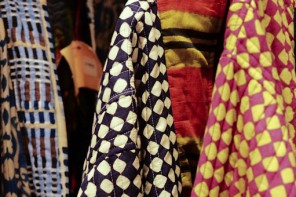This issue is about people, fashion brands and organizations that have changed the lives of artisans and their communities.
Since the dawn of the financial crisis, the luxury industry has been hard-pressed to justify their sky-rocketing prices. And many times these days the artisanal quality and history of the brand is at the heart of ad campaigns. Which begs the question: If skilled seamstresses, tailors, weavers, goldsmiths and tanners etc. are crucial to the future of luxury, then why aren’t they paid as much as top managers? Why aren’t more artisans starting their own brands?
Now that the industry and its champions have adopted a more ethical ethos, we might live to see this all change.
Since starting BACO in November last year and through our own work, we have had the opportunity to meet a few of these crusaders.
NGOs like the Ethical Fashion Initiative and e-commerce initiatives like Studio One Eighty Nine are just a few of them. Designers too, like Roman designer Stella Jean and India’s Rahul Mishra are two examples of creatives who are sharing the fame with the artisans they work with in developing countries.
The internet is also playing a large role in highlighting the importance of artisans in the fashion world. The web is also educating aspiring fashion designers, in African nations and Haiti, for example, where tradition and folklore fuels creativity, rather than top-tier fashion schools.
“It’s not easy for aspiring designers to get a degree. I would say the biggest challenge is the energy issue. The lights (electricity) goes on and off often (in Ghana it’s called DUMSOR… 24 hours off / 12 hours on). Many communities cannot keep their devices charged long enough to take courses. I think advances in technology have to come hand in hand with energy advances so groups will really benefit,” Studio One Eighty Nine co-founder Abrima Erwiah said.
Studio One Eighty Nine, whose other co-founder is actress Rosario Dawson, works with many artisans in Ghana. The organization believes that creative industries can boost the gross domestic product (GDP) in developing nations.
“The average age in Sub Saharan Africa in 2010 was 18.6 and by 2100, more than a third of the world’s young people will live in Sub-Saharan Africa… Education is the key. It’s the key for growth,” she said.





